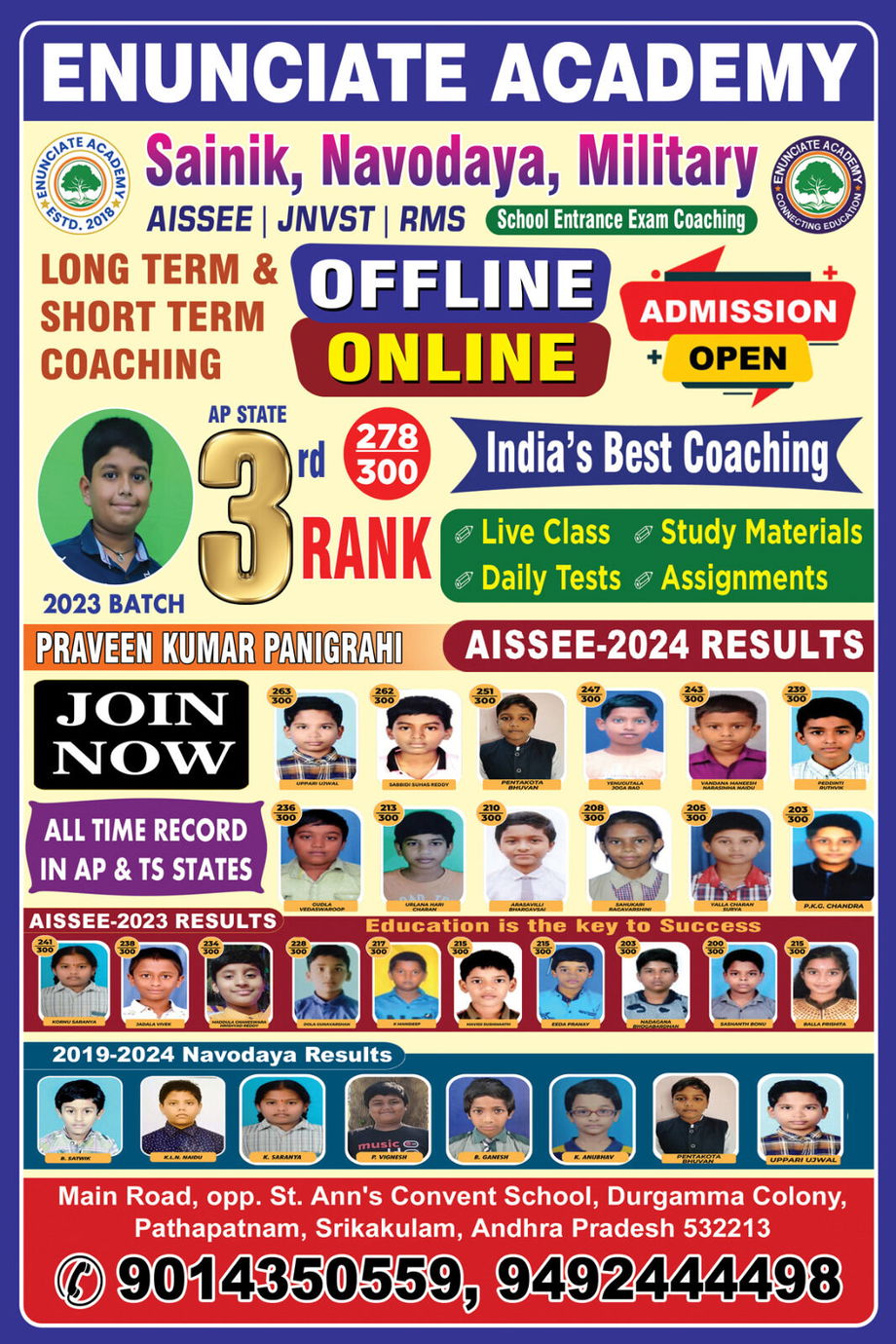Introduction to Jawahar Navodaya Vidyalayas (JNVs)
Jawahar Navodaya Vidyalayas (JNVs) are residential co-educational schools established by the Government of India. These institutions aim to provide high-quality education to talented children, primarily from rural areas. Fully funded and administered by Navodaya Vidyalaya Samiti, they focus not only on academics but also on cultural values, environmental awareness, adventure activities, and physical education.
Objectives of the Jawahar Navodaya Vidyalaya Scheme
The objectives of the JNV scheme include:
- Providing modern education with a focus on cultural values and physical education.
- Ensuring competency in three languages.
- Promoting national integration through student migration.
- Improving overall school education quality in districts.
Admissions to Class VI in Jawahar Navodaya Vidyalayas (JNVs) are conducted through the Jawahar Navodaya Vidyalaya Selection Test (JNVST). This selection test is designed to identify talented students from rural areas and ensure equitable access to quality education provided by JNVs across India.
Currently, there are 649 functional JNVs spread across 27 states and 8 union territories in India. The establishment of JNVs follows the Navodaya Vidyalaya Scheme, which aims to establish one JNV in each district in a phased manner, thereby enhancing educational opportunities in rural and remote areas.
The authority to adjust the number of seats or withhold the JNVST results, admission, or conduct of the test rests with the Navodaya Vidyalaya Samiti (NVS). NVS may reduce the maximum intake of students from eighty to forty per JNV if there are constraints such as inadequate accommodation facilities. This decision is crucial for maintaining operational efficiency and ensuring optimal learning environments within each JNV.
Admission Process and Key Dates
The admission process for the academic session 2025-26 will conclude by 31st December 2025. The JNV Selection Test for Class VI for this session will be held. Selected candidates will be notified via SMS and speed post, and results will be available on the NVS website and designated offices.
Medium of Instruction and Board Examinations
At JNVs, the medium of instruction is the mother tongue or regional language up to Class VIII, transitioning to English for Mathematics and Science from Class IX onwards, while Hindi is used for Social Science. Students appear for Central Board of Secondary Education (CBSE) board examinations.
Financial Aspects and Facilities
Education at JNVs, including boarding, lodging, uniforms, and textbooks, is free of cost. However, students in Classes IX to XII contribute a nominal amount towards Vidyalaya Vikas Nidhi (VVN). Certain categories like SC/ST students, girl students, and those from BPL families are exempt from this fee.
Additional JNVs for SC/ST Concentrated Districts
Additional JNVs are sanctioned in districts with significant SC/ST population concentrations to ensure equitable access to quality education.
Admit Card
Admit cards for the Jawahar Navodaya Vidyalaya Selection Test (JNVST) are accessible on the NVS (Navodaya Vidyalaya Samiti) application portal. It is essential for candidates and parents to download these cards before the commencement of the JNVST as per the schedule determined by NVS. Admit cards are mandatory for appearing in the selection test.
Waitlists for Vacancies
Navodaya Vidyalaya Samiti (NVS) releases two waitlists to fill vacancies that may arise due to provisional candidates' unwillingness to join or non-submission of essential certificates within the stipulated timeframe. These waitlists ensure efficient utilization of available seats and offer deserving candidates the opportunity to secure admission to Jawahar Navodaya Vidyalayas (JNVs).
Fee Structure
Education at Jawahar Navodaya Vidyalayas (JNVs) is free for all students, covering boarding, lodging, uniforms, and textbooks. However, students in Classes IX to XII are required to contribute Rs. 600/- per month towards Vidyalaya Vikas Nidhi (VVN). Certain categories such as Scheduled Castes (SC), Scheduled Tribes (ST), differently-abled (Divyang) students, all-girl students, and students from below poverty line (BPL) families are exempt from this fee, ensuring accessibility without financial barriers.
Fees for Government Employees' Children in JNVs
Wards of government employees, excluding exempted categories such as students of Classes VI to VIII, SC/ST students, girl students, and wards of Below Poverty Line (BPL) families, are required to pay a fee. This fee is either Rs. 1500/- per month or the actual Children Education Allowance received by the parent per month, whichever is less. However, the Vidyalaya Vikas Nidhi (VVN) component of this fee shall not be less than Rs. 600/- per student per month.
Announcement of JNV Selection Test 2024 Results
The result of the JNV Selection Test 2025 is expected to be announced by March/April 2025. Candidates can check their results on the application portal or through designated offices and official websites.
About Jawahar Navodaya Vidyalayas (JNVs)
Jawahar Navodaya Vidyalayas (JNVs) are co-educational residential schools established and fully funded by the Government of India through the Navodaya Vidyalaya Samiti. They aim to provide quality education, emphasizing academic excellence, cultural values, physical education, and environmental awareness to talented children, particularly from rural areas. Managed centrally, JNVs play a crucial role in national integration by facilitating the migration of students between Hindi and Non-Hindi speaking states. Admission is based on the JNVST, and while provisional selection occurs, actual admission is subject to fulfilling criteria and certificate verification.
No, provisional selection in the Jawahar Navodaya Vidyalaya Selection Test (JNVST) does not guarantee automatic admission into the Jawahar Navodaya Vidyalaya (JNV). Actual admission is contingent upon the candidate fulfilling all necessary requirements and producing all original certificates as specified by the Navodaya Vidyalaya Samiti (NVS). This includes meeting eligibility criteria such as age, domicile, and educational qualifications as outlined in the admission guidelines. Only after the successful verification of these documents and fulfillment of criteria will the provisional selection convert into final admission. Thus, it is crucial for candidates to ensure they have all requisite documents in order to secure their admission into JNVs.


